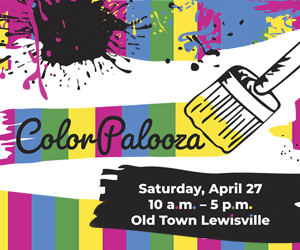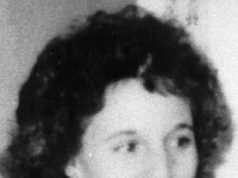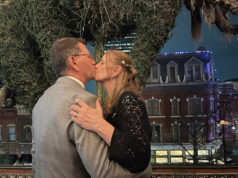Some bar owners think crime is rising downtown because police are picking on club patrons.
By ERIC GRIFFEY
On almost any night when the bars close at 2 a.m., dozens of people loudly pour out of the bars and onto the streets in the south end of downtown Fort Worth – the area known as SoDo by hipsters and marketing gurus. They pour out of other downtown bars, too, about the same time, but fewer of those equally loud folks end up in the hands of the police.
A little over two years ago, a few swanky bars moved in and classed up the area that was known as Hell’s Half Acre more than 100 years ago, offering champagne, fine wines, and an impressive list of high-end liquor. But as the SoDo crowd and bar owners are quickly finding out, growth and progress have their price.
The Fort Worth Police Department has stepped up its presence all over downtown, writing tickets for public intoxication, driving under the influence, and other alcohol-related violations. The Texas Alcoholic Beverage Commission and the city fire marshal are also cracking down on violations of seldom-enforced laws regarding maximum occupancy and have even temporarily closed a couple of overcrowded bars, costing the owners a night’s business and a hefty fine. Most of the citations written over the last few months involve the SoDo corridor on and around Houston Street, home to Bent Lounge, Aqua Lounge, Bar 9, The Library, and Rick O’Shea’s Pub.
One former bar owner, Tim Ledger, who until last week was a managing partner of Bar 9, said that his business has been consistently harassed by police, TABC, and the Fort Worth fire marshal’s office. He said that his troubles began after he stopped hiring off-duty police officers to provide security. Since then, he said, police have filed numerous complaints against his bar with the TABC and fire department, prompting almost weekly visits from both.
Ledger said he let go two off-duty police officers in order to cut costs, saving about $300 for about four hours work per night.
“There were times the TABC actually sat in front of our door and arrested people as they were leaving,” said Ledger, who lives in Dallas and began working in Fort Worth last May. The police department’s paddy wagon, he said, is parked outside of Bar 9 on most nights.
According to Ledger, both TABC and fire marshal officials informed him that the reason his bar was being visited so frequently was that police were filing complaints.
“After a while the TABC guy took me aside and said, ‘I don’t know what is going on between you and the police department, but you’re going to have to make it stop,’ ” he said.
Ledger eventually rehired the officers, but only after a sit-down meeting with a vice officer, whom he did not name. Ledger said the officer told him and his business partner that he would file grievances against their liquor license and make it impossible for them to get permits for a planned renovation.
“He said that he had 31 counts of public intoxication that were related to Bar 9. He said he’d be willing to say that those public intoxications wouldn’t go against us if he thought we were doing the right thing,” the former bar owner said. The officer, he said, told them that the first step in “doing the right thing” was re-hiring the off-duty police officers.
Fort Worth Police spokesman Lt. Daniel Henderson said that the police enforce laws equally for all businesses but have been struggling with the problem of customers being overserved in several bars.
“A business’ decision to employ off-duty officers is at their discretion,” he said. “If a bar owner or manager feels that they have been treated unfairly, they have the recourse of filing a complaint with either the division captain or Internal Affairs.”
A couple of months ago, the maximum occupancy allowed in the 9,000-square-foot Bar 9 was 49 people, but it has since been raised to 140. Ledger said an officer from the fire marshal’s office, escorted by a police officer, showed up on a Saturday evening and made him shut down the second floor of the multi-level bar – where a TCU alumni party was being held – because of zoning issues. An hour later, he said, the same police officer showed up and demanded that the bar meet the 49-person occupancy limit, which was in the process of being changed. The bar owners decided to close for the night.
Some bar owners dislike the crackdown and believe their customers are being targeted unfairly. Others agree that the police presence is making downtown safer but isn’t good for business. “People see cops down there [around the bars], and that’s the last place they want to be,” said Aqua Lounge co-owner William Powell.
Henderson said no specific crackdown on public intoxication has been ordered. But he acknowledged that, particularly in SoDo, “Off-duty officers who work at the bars have been directed to be more diligent in assisting the bar managers and bartenders in recognizing extremely intoxicated persons who continue to be provided drinks from bar service.”
There are more officers downtown these days, Henderson said, for two reasons: the exponential growth, both in residents and businesses, that the area has experienced in the last few years, and the reputation that SoDo bars have developed for overserving their customers. From Oct. 29 to Nov. 3, police wrote 121 citations downtown – including 39 for public intoxication and 13 for driving under the influence.
Andy Taft, president of Downtown Fort Worth Inc, said that his organization has noted a steady rise in the crime rate over the last year, particularly in the southern part of downtown. His organization meets often with bar owners to encourage them to be responsible and mindful of the area’s residents. He said he’s not surprised that the police are issuing more tickets.
“We’ve seen some of the bars operated very well and others not as well,” he said.
Powell and other bar owners believe that the rising crime rate is due in part to the police presence – that it’s a case of the chicken coming before the egg.
“If you put more police downtown, there are going to be more tickets [issued],” he said. Powell believes that bars are being unfairly targeted by police, who are just waiting for people to leave the bars, ticket pad in hand. “You don’t see them sitting outside of Del Frisco,” he said.
TABC officials warned Powell and other bar owners last August that they would be stepping up scrutiny on issues like occupancy and public intoxication, which have been only laxly enforced in the past.
“There is just a bigger police presence in downtown,” said Eric Tschetter, owner of the Pour House Pub, on the outskirts of Sundance Square. “I don’t think they are targeting anyone specifically.” It’s good to have more police around, he said, but “they don’t need to be writing as many tickets.”
As for Ledger, he believes that the era of police harassment in SoDo might come to an end soon.
“I can’t believe that Fort Worth makes it so hard for people to do business,” he said. “I know a lot of big club owners over here in Dallas are starting to look at Fort Worth because the market is dry [in Dallas]. If you start messing with these bigger companies like that, they’ve got a whole team of lawyers that will put them in their place.”











